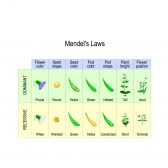Definition
adjective
Of, pertaining to, or promoting suppuration; tending to suppurate
noun, plural: suppuratives
(medicine) A therapeutic agent promoting suppuration
Supplement
Suppurative is a term used to describe a disease or condition in which a purulent exudate (pus) is formed and discharged. Examples of such condition include appendicitis, arthritis, cerebritis, choroiditis, encephalitis, endophthalmitis, gastritis, gingivitis, hepatitis, hyalitis, mastitis, nephritis, pancreatitis, periodontitis, and phlebitis. Inflammation accompanied by pus formation is referred to as suppurating inflammation. In contrast, an inflammation not accompanied or characterized by suppuration is called nonsuppurative inflammation. In the same way, conditions mentioned above that are not accompanied by suppuration are described as nonsuppurative. Bacteria causing suppuration are also described as suppurative.
Apart from its use as an adjective, it is also used as a noun. Suppuratives are those used to promote suppuration. Examples of suppuratives are herbs that promote suppuration such as margosa leaves and croton oil. The croton oil is employed to produce rubefaction accompanied by a pustular eruption. It is rubbed on the skin, particularly on the throat and chest areas. It is said to be efficient in subacute and chronic laryngeal and bronchial affections, as well as in rheumatic joints.1
Word origin: Latin suppurare (to form pus)
Synonym(s):
- suppurant (medicine)
Related term(s):
Reference(s):
1Biddle, J. B. (1868). Materia Medica, for the Use of Students. Philadelphia: Lindsay & Blakiston.







